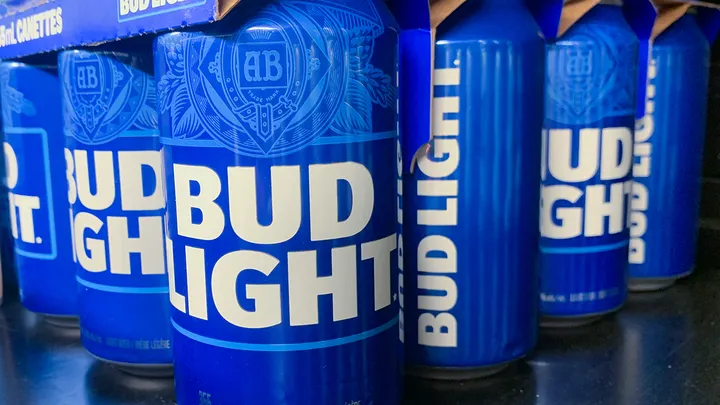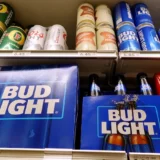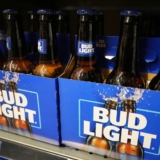Backlash Against “Woke” Corporations Takes Toll on Market Value and Sales
In a year marked by consumer discontent, several major corporations faced significant financial losses as Americans voted with their wallets against what they perceived as “woke” initiatives. On Tuesday’s edition of “The Bottom Line,” FOX Business analysts Kelly O’Grady and Sean Duffy delved into the financial fallout experienced by companies engaging in what has been termed “corporate virtue signaling.” Former Anheuser-Busch President Anson Frericks suggested that consumers are growing weary of major corporations attempting to dictate their thoughts and actions.
One notable case was Bud Light’s association with transgender activist Dylan Mulvaney during a March Madness social media promotion. The beer brand’s decision to celebrate Mulvaney’s identification as a woman by adorning personalized packs of Bud Light with Mulvaney’s face led to a swift and substantial decline in sales. Anheuser-Busch CEO Brendan Whitworth, addressing the controversy on April 14, claimed the company “never intended to be part of a discussion that divides people.” By May, the company had lost $27 billion in market value, with sales plummeting nearly 30% compared to the previous year.
In July, Anheuser-Busch announced layoffs affecting hundreds of workers, and its third-quarter results indicated a 13.5% decline in U.S. revenue and a 17.1% drop in North American sales volume.
Retail giant Target faced a similar fate after featuring products for transgender individuals in its Pride Month displays. The inclusion of female-style swimsuits designed for “tucking” male genitalia sparked backlash, leading some Southern stores to relocate the merchandise to avoid a situation similar to Bud Light’s. Target’s stock suffered, and its sales experienced a downturn in the second quarter.
The Walt Disney Company also had a challenging year, marked by box office disappointments and high-profile clashes with Florida Governor Ron DeSantis over the state’s Parental Rights bill. Out of eight major theatrical releases, seven significantly underperformed both in the U.S. and overseas. In a November SEC annual report filing, Disney acknowledged risks related to “misalignment with public and consumer tastes and preferences for entertainment.”
Disney’s stock price is down over 5% year-to-date compared to the S&P 500, which rose over 13% in the same period. The company’s shares have dropped more than 29% in the past five years, hitting nine-year lows in October.
Anson Frericks, the former Anheuser-Busch President, predicts a “long road to recovery” for these companies, emphasizing that while it takes years to build corporate brands, a single marketing campaign can rapidly erode them. The financial setbacks underscore the delicate balance companies face when navigating social and political





